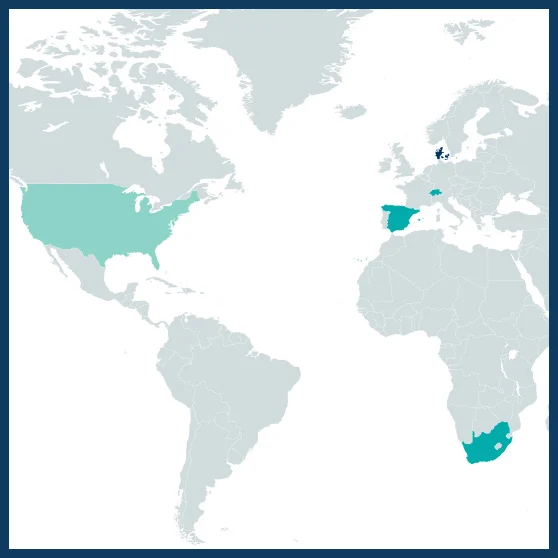01/04/2021 – 29/02/2024
€ 932,089
Anders Priemé
aprieme@bio.ku.dk
Coordinator: Silviculture – University of Natural Resources and Life Sciences – Vienna – Austria
Health and Bioresources – Austrian Institute of Technology – Tulln – Austria
Forest Conservation – Forest Research Institute of Baden-Württemberg – Freiburg – Germany
Forest Genetics and Plant Breeding – Aristotle University of Thessaloniki – Thessaloniki
– Greece
Biodiversity and Conservation Biology – Swiss Federal Institute WSL – Birmensdorf – Switzerland
Plant Genetics – Middle East Technical University – Çankaya, Ankara – Türkiye
National Botanical Garden of Turkey / TAGEM – Çankaya, Ankara – Türkiye

Climate change has large effects on most biomes on Earth. This includes effects on soil microorganisms and their activity, which in turn may affect the release of greenhouse gases and the turnover of nutrients important to plants. Despite their importance, these effects are poorly understood by the scientific community. The overall aim of GRADCATCH is to unravel the effects of climate change at regional and global scales on soil microorganisms and their feedbacks on climate. To accomplish this, GRADCATCH will study trans-continental natural gradients in aridity, latitude and altitude.
GRADCATCH aims to:
• Understand short- and long-term adaptation and susceptibility of soil microbial diversity and functions to climate change, such as variations in soil water availability and temperature.
• Identify phylogenetic and functional soil microbial indicators of climate change.
•Generate robust data for modelling of climate-soil biodiversity feedback processes, mainly production and consumption of the greenhouse gases CO2, CH4 and N2O.
GRADCATCH will assess how soil microbial abundance, diversity, activity and functions change along four natural gradients, i) a trans-continental latitudinal gradient from the extreme high Arctic in North Greenland through low Arctic to boreal and temperate Europe, ii) an altitudinal gradient in the Swiss Alps, and iii) two aridity gradients, one from the humid NW to the arid SE Spain and one from humid to arid biomes in South Africa. This encompasses sampling 70 field sites. In addition, we will perform in situ soil transplantation experiments along the four gradients and in silico laboratory experiments on soil microcosms to investigate the short-term (one year) effects of predicted climate change.
In the field, we will measure the fluxes of CO2, CH4 and N2O. In the laboratory, we will employ DNA- and RNA-based methods as well as assays of enzyme activity to investigate how soil microbial diversity and activity link to predicted climate change scenarios. In addition, we will use our data to parameterise computer models of microbial functioning and response to climate change.
It is expected that the data generated by GRADCATCH will have an impact beyond the scientific community. Thus, stakeholders from local communities, NGOs, government departments and policy makers will be engaged in the planning of our experiments and in the interpretation of the data generated. Their involvement will enhance knowledge transfer as stakeholders can offer more efficient routes of communication of main GRADCATCH data and findings to local and national governments. It is expected that stakeholders will help the project bringing data to the attention of key government institutions, which ultimately may improve regulations in order to mitigate the effects of climate change.